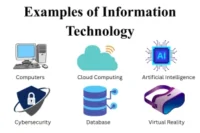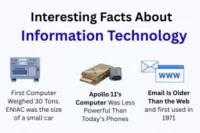What Is Technology? A Beginner’s Guide to Its Evolution and Future Impact
Published: 1 Aug 2025
Technology is an integral part of our everyday lives. It’s in our phones, in how we communicate with each other, how we perform our jobs, and even how we take care of our health.
But what is technology? It’s not just fancy devices. It’s all about utilizing knowledge and tools to solve problems and simplify tasks. This could be anything from the invention of the wheel to modern-day artificial intelligence.
So, how did technology evolve to its current state? And what might come next? In this article, we’ll examine what technology means, its evolution over time, its impact on our lives, and its potential future directions.
Whether you’re sincerely interested in tech or simply curious to learn, this guide is prepared to explain things clearly and concisely.
What Is Technology?
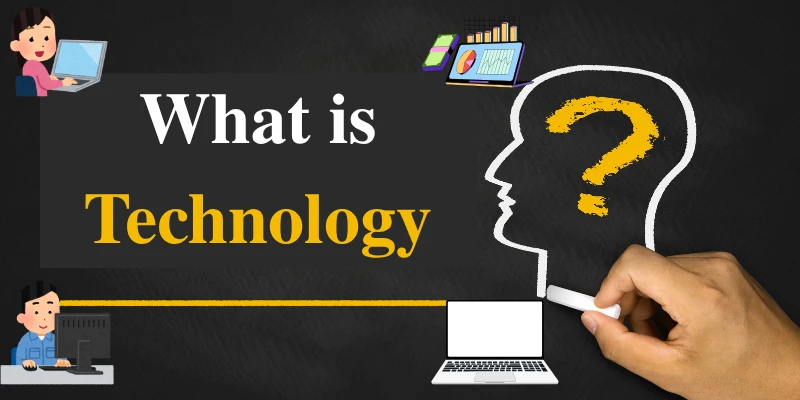
Technology means using knowledge and skills to make tools or procedures that help solve problems or make things work better. It connects what we know with what we can do.
You can think of technology as ranging from a basic tool, such as a hammer, to something more advanced like an artificial intelligence. If something helps us do a task better or faster then it is called technology. It’s mostly about making life easier and more efficient.
Example: Communication has undergone significant changes due to technology. With just one app on your phone, you can message or video call someone who’s far away. Without these latest technologies, everything would be hard or impossible.
History and Evolution of Technology
Technology didn’t develop overnight—it’s been evolving for thousands of years. Here’s a short overview on how it all began:
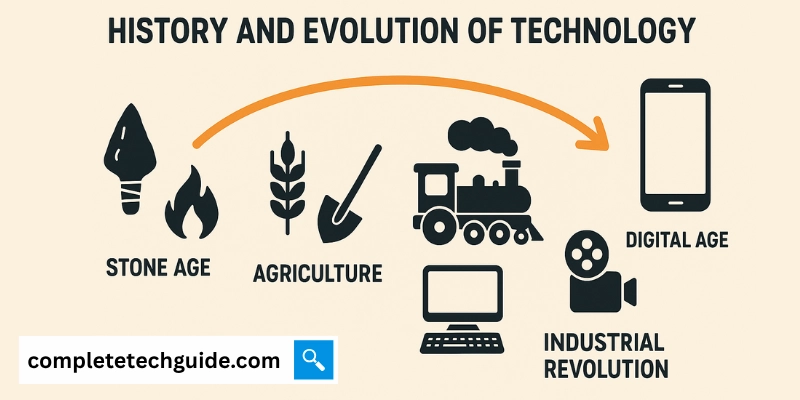
- Early Innovations: The first forms of technology were basic tools such as stone axes and the use of fire. These tools helped early humans with tasks such as hunting, cooking, and staying warm. Later, they learned how to farm, which guided the organization of settled societies and the development of early civilizations.
- The Industrial Revolution: In the 1900s, the innovation of computers and the internet changed how people worked and stayed in touch with each other. Today the latest technologies such as smartphones, online services, and cloud storage play an integral part in every aspect of life.
- The Digital Age: Fast forward to the 20th century, where computers and the internet revolutionized how we work, learn, and communicate. The digital age has brought us to where we are today, with smartphones, social media, and cloud computing becoming an essential part of our lives.
- Modern Innovations: These days, we’re seeing new tech like artificial intelligence (AI), biotechnology, and renewable energy. These innovative technologies are slowly changing how we solve problems and plan for the future.
Types of Technology
Technology isn’t all the same. Different types of technology affect different parts of our lives. Here’s a simple breakdown of some common types:
1. Information Technology (IT):
Information Technology (IT) involves the use of computers and software to manage and share information. We see it in technologies such as the internet, cloud storage, and data systems. It’s used in schools, offices, and homes to make storing and accessing information faster and easier.
2. Communication Technology:
Communication Technology helps people talk or share ideas over long distances. Smartphones, messaging apps (such as WhatsApp Messenger), email, and video calls are all examples of digital communication tools. It’s part of how we work, study, and stay in touch. This technology has made communication fast and simple worldwide.
3. Medical Technology:
Medical Technology includes the instruments and systems used in healthcare such as MRI machines, pacemakers, and telemedicine apps. It’s used in hospitals and clinics to help diagnose and treat patients. It has improved the healthcare industry by making treatment more accurate and functional.
4. Energy Technology:
Energy Technology focuses on creating and managing power in cleaner and more efficient ways. Solar panels, wind turbines, and electric grids are good examples of Energy technology. These are used in homes, factories, and cities to reduce pollution and lower energy costs.
5. Biotechnology:
Biotechnology utilizes living systems to handle problems or produce valuable products. It includes technologies such as gene editing, vaccines, and lab-grown food. This technology is found in medicine, agriculture, and laboratories to improve health, enhance farming, and aid in disease control.
6. Transportation Technology:
Transportation Technology helps move people and things more efficiently. Electric vehicles, high-speed trains, and GPS are examples of these technologies. We use them in daily travel and shipping. This tech innovation has made transport faster and more convenient.
7. Environmental Technology:
Environmental Technology is designed to minimize damage to the environment. Examples of this technology include recycling systems, clean water filters and air quality monitors. It is used in cities and industries to protect natural resources and promote a cleaner lifestyle.
8. Space Technology:
Space Technology allows us to explore space and gather information. Satellites, telescopes, and spacecraft are examples of this latest innovation. It’s used in weather forecasting, GPS, and scientific research. This tech helps us understand space and supports global communication.
Impact of Technology on Daily Life
Technology is everywhere, and it’s constantly reshaping how we live. Here are just a few ways technology affects us every day:
- Communication: Remember the days before smartphones? Today, we can instantly call, text, or video chat with anyone, anywhere, thanks to communication technology.
- Work: Technology has transformed the workplace. From cloud computing and virtual meetings to automation and AI, technology has made work more flexible and efficient.
- Health: Health technologies such as wearable fitness trackers and telemedicine are now helping people to monitor their health. The advancements in medical equipment improve the standard of diagnosis and treatment.
- Education: E-learning platforms and digital resources have changed the way we learn. Online courses, educational apps, and virtual classrooms have made education more accessible to people worldwide. You can easily learn anything from anywhere with the advancement of educational technology.
- Entertainment: Online Streaming services, mobile gaming, and social media have completely transformed the way how we entertain ourselves. What was once limited to TV shows and movies is now an interactive experience.
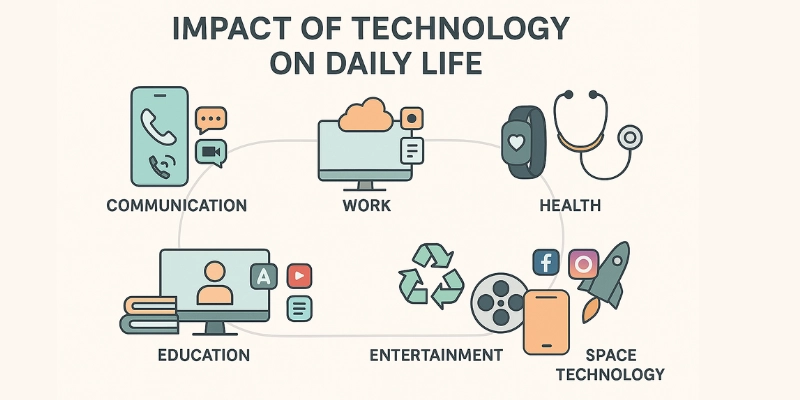
Challenges and Ethical Considerations in Technology
As technology continues to advance, it brings with it several challenges and moral concerns. Here are the few challenges of technology to consider in our daily life:
- Digital Divide: Not everyone has equal access to the latest technology, resulting in unequal opportunities. The digital divide affects education, job chances, and even access to healthcare services.
- Data Privacy: With the rise of digital technologies, personal data has become a valuable commodity. As a result, data privacy has become a major concern and it’s essential for users to protect their information.
- Artificial Intelligence: AI has the potential to change many industries, but it also raises important questions. How can we ensure that AI is used fairly and responsibly? And what happens if machines start making decisions on their own, without human control?
- Environmental Impact: While technology helps improve efficiency, the production of electronic devices and the energy consumption of data centers can contribute to environmental damage. Sustainability is now a major issue when it comes to technology.
The Future of Technology
Looking ahead, there are many ways technology could develop. Here are a few tech trends to keep an eye on:
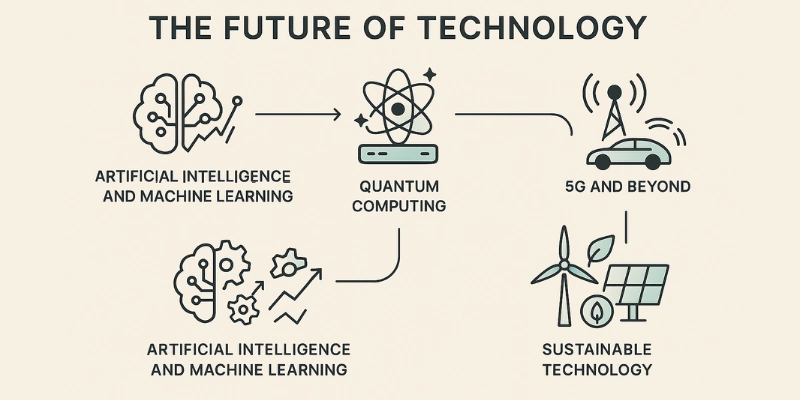
- Artificial Intelligence (AI) and Machine Learning: AI is already making an impact in areas such as healthcare, finance, and transportation. AI will continue to transform the way things work in the modern world. Machine learning is helping businesses predict trends, automate tasks, and enhance their interactions with users.
- Quantum Computing: Quantum computers have the potential to solve problems that today’s computers can’t. They could be particularly helpful in areas such as security, materials science, and running complex simulations.
- 5G and Beyond: The new 5G wireless networks will enable faster and more reliable data transmission. This 5G technology will unlock new possibilities for connected devices, self-driving cars, and smart cities.
- Sustainable Technology: As climate change becomes a more critical issue the future technologies are likely to focus on solutions that help protect the environment. Clean energy, carbon capture, and eco-friendly innovations will be necessary for a more sustainable future of this planet.
Frequently Asked Questions (FAQs)
Technology is the use of scientific knowledge to create tools, machines, and systems that help solve problems and make life easier. It includes everything from wheels to smartphones and laptops.
Initially, technology referred to the practical abilities and expertise required to create tools and objects. Over time, the definition grew to cover the creation of systems and developments that affect every part of life, from simple instruments to complex digital inventions.
Technology refers to instruments, gadgets, and systems created using scientific knowledge. It helps improve how we live, work, and communicate. It includes both simple inventions like tools and complex systems like computers.
Technology is now evolving every day to meet human needs. It impacts nearly every aspect of our daily lives.
The word “technology” originally came from the Greek words techne, meaning craft, and logos, meaning study. It was first used in the 17th century to refer to a systematic study of mechanical arts, focusing on experimental applications and skills.
Technology sales refer to the process of selling technology products and services, such as software, hardware, or tech solutions. It involves understanding buyer needs and offering the right technology solutions to meet those needs.
Technology enables us to solve issues, boost productivity, and enhance our quality of life. It has significantly improved the efficiency of communication, journeys, and healthcare. Without it, many of the modern comforts would be impossible.
Smartphones, home appliances like refrigerators and microwaves, computers, and even transportation like cars, airplanes, and trains are everyday technologies. These tools use technology to make our lives easier, more connected, and more efficient.
No, technology cannot solve all of the world’s problems. While it can solve problems like healthcare and energy, concerns like inequality and political instability require changes in human behavior and social institutions, not simply technology.
Conclusion
Technology has played a significant role in shaping the modern world as it continues to develop. From making communication easier to transforming healthcare, technology impacts almost every aspect of our lives.
Looking ahead, it’s essential to understand what technology is and consider how we utilize it, as well as how we can shape its future in a positive direction. Whether you’re really into tech or use it daily, its impact on our lives is clear.
What role will you play in the next big step forward in technology?

- Be Respectful
- Stay Relevant
- Stay Positive
- True Feedback
- Encourage Discussion
- Avoid Spamming
- No Fake News
- Don't Copy-Paste
- No Personal Attacks



- Be Respectful
- Stay Relevant
- Stay Positive
- True Feedback
- Encourage Discussion
- Avoid Spamming
- No Fake News
- Don't Copy-Paste
- No Personal Attacks



